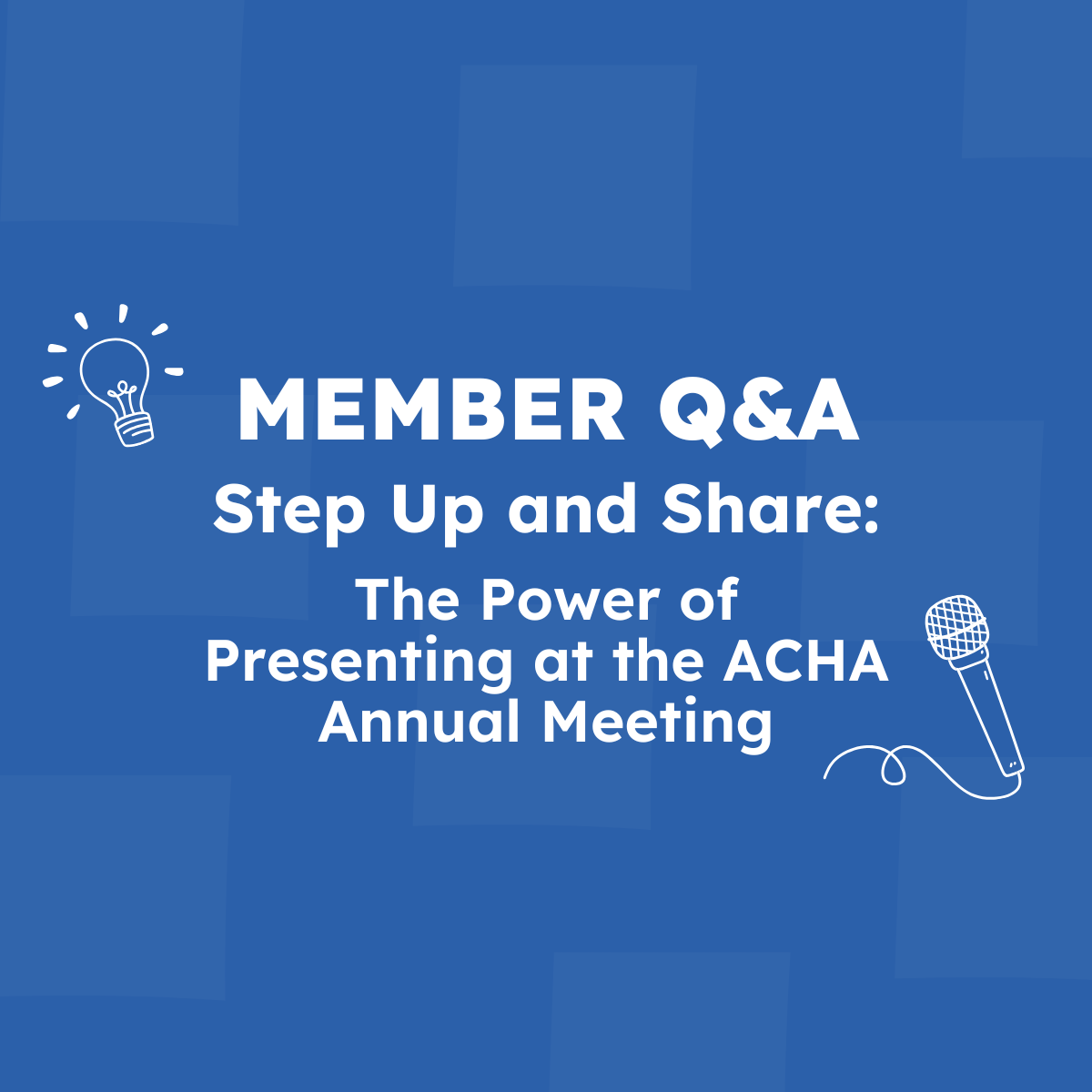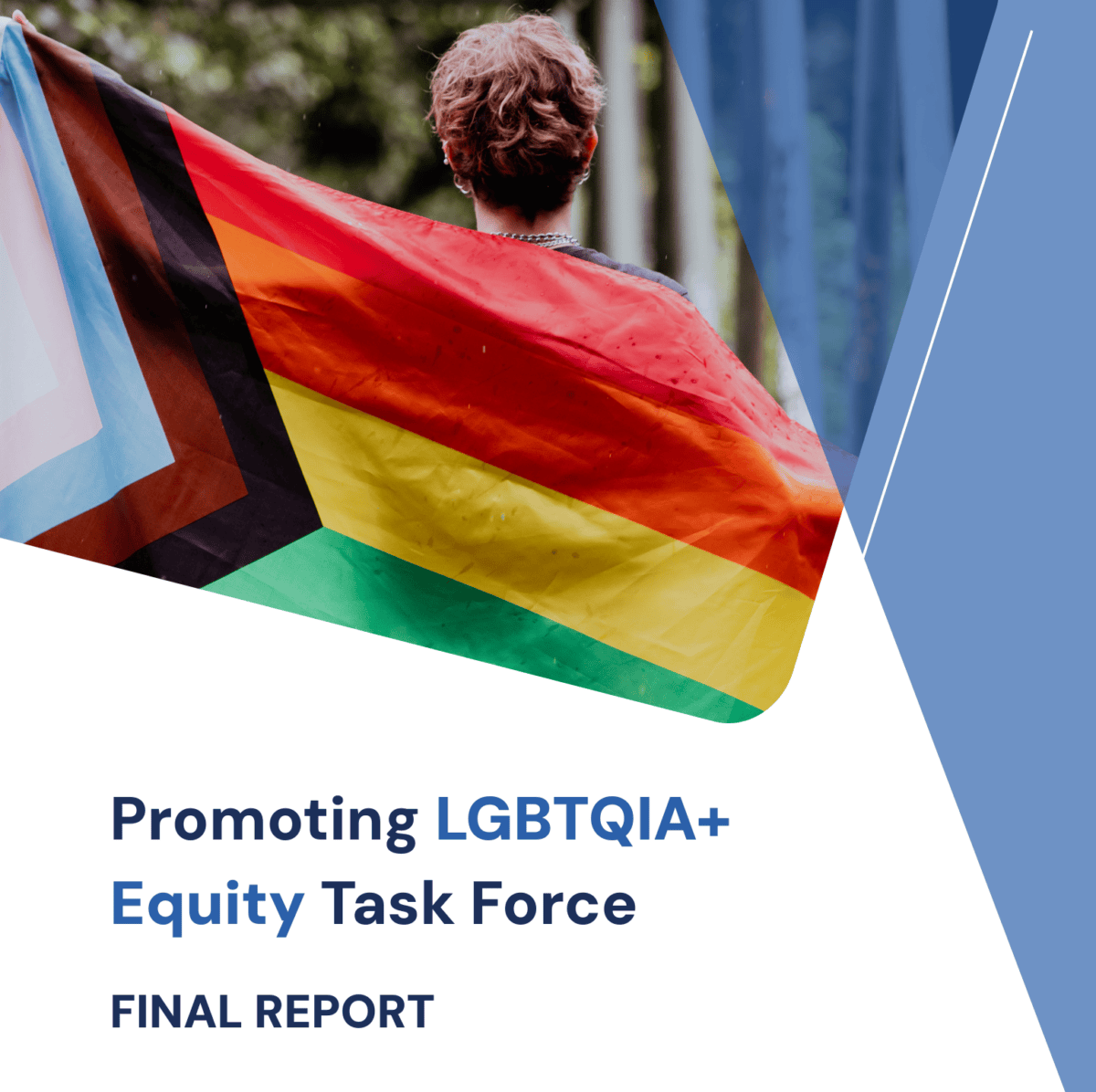If you’ve developed a strategy that addresses today’s campus health challenges, consider submitting a proposal for ACHA 2026 in Denver.
Your solutions and lessons learned could be the spark that helps your peers in college health and wellness overcome similar challenges and advance student well-being on their own campuses.
Presenting at ACHA can feel like a big step. If you’ve ever considered submitting a proposal but weren’t sure where to begin—or whether your voice belongs in the conversation—you’re not alone. To offer perspective on the value of presenting, we sat down with Gina Orlando, MPH, CHES, CWHC, Columbia University, who served as the 2025 ACHA Program Planning Committee Chair and has experience as an ACHA Annual Meeting presenter.
In this Q&A, Gina shares what motivated her to submit a proposal, what she’s gained from the experience, and why she encourages other college health professionals to take the next step. Whether you’re a seasoned speaker or thinking about presenting for the first time, her insights offer encouragement, practical advice, and a reminder that every voice has the power to make an impact.

Q: What motivated you to submit a program proposal to present at the ACHA Annual Meeting?
A: Seeing the connections that other colleagues made during their presentation was a big motivator for me. I was also excited about the work that I was doing, and I wanted to share it with others.
On a logistics level, I knew that I wanted to continue to attend the ACHA Annual Meeting, and my institution was a lot more likely to financially support attendance at the conference if I was accepted as a presenter. I can get the majority of my CE credits by attending the Annual Meeting each year, and maintaining my certification is an expected part of my role.
Q: Was there a specific experience, project, or issue that inspired your presentation topic?
A: In some instances, the presentation topic was related to the work that I was doing within ACHA committees. At other times, the topics were inspired by things that my co-presenters and I saw happening within our world.
Q: Why did you feel it was important to share your work with the college health community?
A: I think it’s important to share my work with the community because doing so allows us to learn from each other. When I present, I may be sharing what I’ve learned and how I do things at my institution, but I’m also learning through the conversations I have with the attendees of my sessions. I also think it’s an opportunity for fresh ideas. It helps me expand my thinking about what I’m doing and how I can approach things in new ways.
Q: What is the most rewarding part of presenting at the ACHA Annual Meeting?
A: The most rewarding part of presenting at the ACHA Annual Meeting is knowing that your contributions may help someone else. Every presentation isn’t for every person, but when you have that moment of realizing that you have reached the people who will benefit from this information, it’s a great experience.
Q: How did presenting at ACHA impact your professional development or career?
A: Presenting at ACHA helped me connect with other people across the country doing similar work. In addition to talking about my own work, it was an opportunity to hear about how others are tackling these issues on their campuses.
Additionally, it was a way to demonstrate to my own institution the value of my work. By demonstrating that this was a program that was selected by my peers for inclusion in a national conference, it gave some external validation to my work.
Q: What would you say to someone who’s on the fence about submitting a proposal?
A: If someone was on the fence, I’d remind them that they’ll never know unless they try! Even if the proposal isn’t selected, it’s a good opportunity to practice crafting proposals, articulating how you do your work, and defining clear objectives. And if the proposal is selected, you have an opportunity to present at a national conference. It’s a win-win!
Q: Any tips for crafting a strong proposal or preparing to present?
A: When it comes to writing a strong proposal, draft clear objectives with action verbs. The person reviewing the proposal should know exactly what you aim to do, how long it’ll take, and the methods you use to achieve those objectives.
When it comes to preparing to present, consider accessibility. Your audience will have many different needs, but you won’t know who will be in the space until you get there. Thinking about color contrast, how visually crowded any slides are, what is on the slide vs what you say out loud, and using a microphone are just a few ways to ensure that people are able to take in your message. It doesn’t matter how incredible the content of your session is if you aren’t able to deliver it in a way that is easily accessible for your audience’s needs. And when it comes to accessibility, being inclusive benefits everyone.
Q: Why do you think it’s important for more professionals to share their work at ACHA?
A: Within college health, we all have a common goal of supporting student well-being. However, each school has its own needs and considerations. Having a wide range of voices in the Annual Meeting helps ensure that we are thinking about college health in new ways. If we’re always hearing from the same voices, there is less opportunity for growth and collaboration.
Related Links
Use the links below to submit a proposal for ACHA 2026 in Denver:
Post Type
Annual Meeting, Articles





